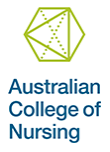Child Development in the Family Context

The purpose of this unit of study is to help students explore child development within the child’s family, culture, and environment.
Nurses working in partnership with infants, children, and their families must have in-depth knowledge and understanding of a child’s physical, emotional, cognitive, and social development and the influences on their development in the early years. This knowledge assists nurses in promoting and strengthening the relationship between young children and their support networks, therefore enabling the attachment process, a fundamental element in healthy development.
Central to the role of a nurse working with young children and families is acquiring growth and developmental assessment skills. Assessing, screening, and monitoring a child’s development throughout the early years provides a good foundation for person-centred health promotion and facilitates early intervention when developmental issues are detected.
Students studying this Unit will consolidate their theoretical learning through a 40-hour professional experience placement in a child and family health setting.
Term : JANUARY, JULY
Hours of Study: 150
Credit Points : 6
Theme 1: Developmental foundations and influences
Evaluate the research, policies, models, and frameworks that provide parameters for assessing screening, and monitoring child development in the early years
Theme 2: Developmental surveillance and health monitoring
Critically analyse the complex social, cultural, and environmental factors that influence developmental outcomes in young children
Theme 3: Developmental progression in infancy & toddlerhood
Apply advanced knowledge of developmental foundations and theories to support infants’ and children’s biopsychosocial and emotional needs
Theme 4: Developmental progression in the pre-school years
Interpret the signs of perinatal distress that can influence infant-parent attachment and infant mental health and wellbeing
Theme 5: Supporting optimal development
- Implement effective communication strategies that strengthen partnerships with parents, families, community networks
- Reflect on the nurse’s role in facilitating parents’ understanding of their child’s developmental needs through health education and parenting skill development
- Exam Preparation | Respiratory Physiology Part 2
- Posted By eIntegrity Healthcare e-Learning
- Posted Date: 2024-11-18
- Location:Online
- This session contains a series of short revision tutorials using Multiple Choice Questions to assist candidates preparing for the Primary FRCA Examination.
- Exam Preparation | Cardiovascular Physiology Part ...
- Posted By eIntegrity Healthcare e-Learning
- Posted Date: 2024-11-18
- Location:Online
- This session contains a short revision tutorial using Multiple Choice Questions to assist candidates preparing for the Primary FRCA Examination.
- Acute Medicine | Infectious diseases | Differentia...
- Posted By eIntegrity Healthcare e-Learning
- Posted Date: 2024-11-18
- Location:Online
- This session considers the causes of fever and discusses differentials of fever in adults. It also considers causes of pyrexia of unknown origin.
- Acute Medicine | Infectious diseases | TSS Usual o...
- Posted By eIntegrity Healthcare e-Learning
- Posted Date: 2024-11-18
- Location:Online
- This session discusses toxic shock syndrome its diagnosis and treatment.
- Acute Medicine | Infectious diseases | Severe mala...
- Posted By eIntegrity Healthcare e-Learning
- Posted Date: 2024-11-18
- Location:Online
- This session summarises the diagnostic criteria for severe malaria.


